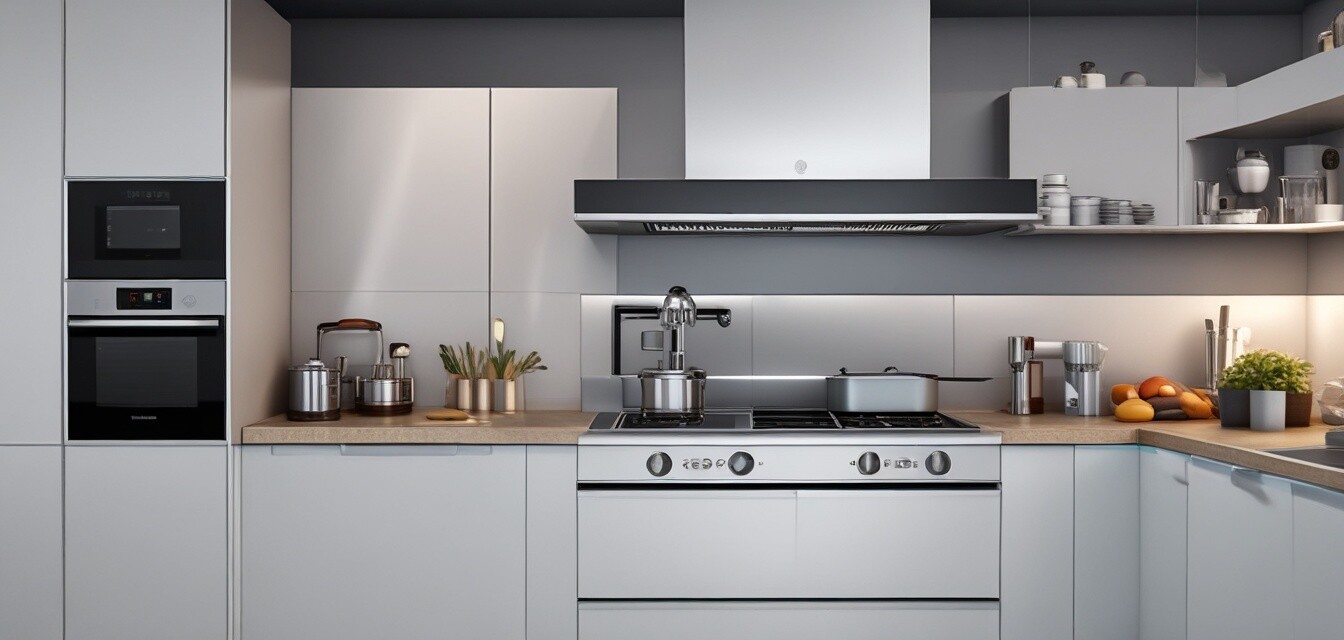
The Future of Food Processing: Innovations in Smart Appliances
- Smart appliances are revolutionizing the way we prepare and process food.
- Integration with smart home systems is becoming standard.
- Energy efficiency is a significant trend among new appliances.
- Innovations are enhancing convenience and functionality in food preparation.
- These developments contribute to healthier eating habits and reduced cooking times.
The kitchen is evolving at a rapid pace, and with technological advances, smart appliances are becoming an essential part of home cooking. From smart ovens to intelligent food processors, these innovations are reshaping how we prepare and consume food. This article delves into the latest trends in smart food processing appliances.
Trends in smart food processing appliances
As technology continues to advance, several key trends have emerged in the realm of food processing appliances. Below are some notable developments:
| Trend | Description |
|---|---|
| AI Integration | Smart appliances utilizing artificial intelligence to learn your cooking habits and optimize settings. |
| App Connectivity | Control your appliances remotely with smartphone apps, allowing for flexibility in meal preparation. |
| Energy Efficiency | Appliances designed to consume less energy, contributing to a greener environment. |
| Automated Cooking | Appliances that can automatically adjust cooking times and temperatures based on food type. |
| Voice Control | Integration with smart home systems, enabling voice commands for hands-free operation. |
How smart appliances are changing food preparation
Smart appliances are not just about convenience; they are fundamentally changing how we prepare meals. Here are some ways they are making an impact:
- Improved Efficiency: Smart appliances can reduce cooking times significantly by optimizing temperatures and times based on the food being cooked.
- Customized Recipes: Many smart food processors come with pre-programmed settings for different recipes, making it easier for users to create elaborate meals without needing culinary expertise.
- Healthier Cooking: Many appliances are designed to promote healthier cooking methods, such as steaming and air frying, making it easier for consumers to make nutritious choices.
Examples of smart kitchen appliances leading the trend
Numerous high-tech appliances are currently on the market, leading the way in kitchen innovation:
| Appliance Type | Features | Advantages |
|---|---|---|
| Smart Ovens | Wi-Fi enabled, recipe integration, customizable cooking settings | Efficient cooking, easy remote operation, improved cooking quality |
| Smart Food Processors | Touchscreen interfaces, app connectivity, multiple processing functions | Enhanced versatility, ease of use, capability for customized meals |
| Smart Mixers | Automated mixing speeds, recipe suggestions, smartphone control | Consistency in mixing, saves time, encourages baking |
| Smart Scales | Bluetooth connectivity, nutritional tracking, recipe scaling | Promotes accurate measurements, assists in meal planning |
| Smart Refrigerators | Touchscreen display, food inventory tracking, expiration alerts | Improved food management, minimizes waste, enhances shopping planning |
Benefits of adopting smart food processors
Adopting smart food processors and appliances in your kitchen can lead to numerous benefits, including:
Pros
- Increased convenience in meal preparation.
- More precise control over cooking processes.
- Remote access allows you to check on cooking while multitasking.
- Encourages experimentation with recipes and cooking styles.
Cons
- Higher initial investment compared to traditional appliances.
- Possible learning curve with new technology.
- Dependent on a stable internet connection for full functionality.
The impact of kitchen technology on food consumption
As smart appliances become more prevalent, not only do they change how we prepare food, but they also influence how we think about consumption and nutrition. The advancements in food processing technology drive trends towards healthier eating habits, reduce food waste, and promote sustainable living practices.
Looking ahead: The future of smart cooking
The future of food processing technology holds exciting possibilities. Here are some potential advancements we might see in the coming years:
- Integration of augmented reality in recipes to guide users visually.
- Increased collaboration with nutritionists for tailored meal planning.
- More robust recycling features in appliances to support waste reduction.
- Enhanced voice recognition capabilities for more natural interactions with devices.
- Greater focus on sustainable materials in appliance manufacturing.
Conclusion
The landscape of food processing is changing rapidly due to the innovations in smart appliances. As these technologies become more integrated into everyday cooking, they promise an era of efficiency, health, and sustainability. Keeping an eye on these trends can empower consumers to make informed decisions, ultimately enriching their culinary experiences. For the latest insights into kitchen and appliance trends, be sure to check out our other articles on news and trends.